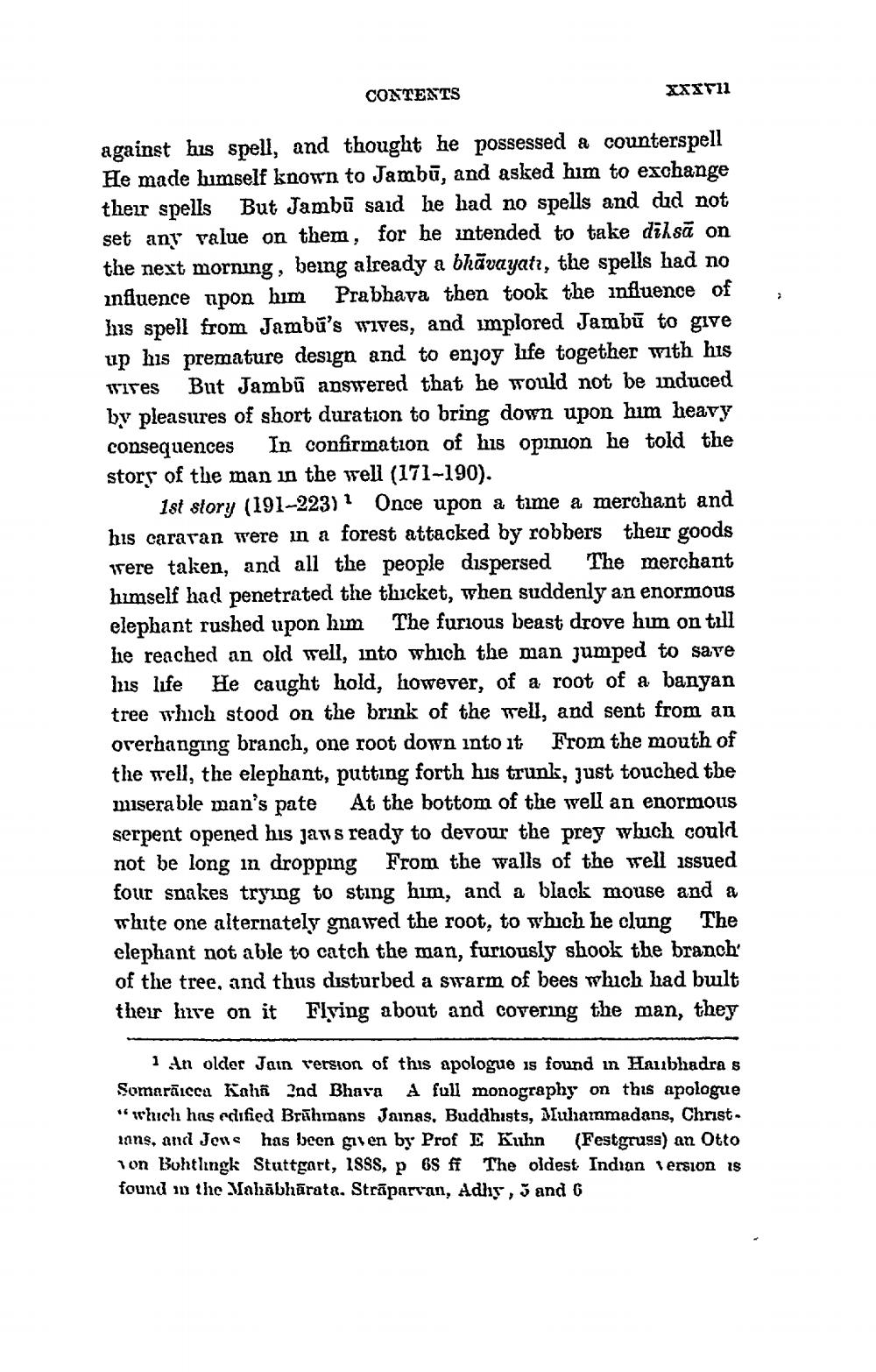________________
CONTENTS
ΧΑΣΤ1
against his spell, and thought he possessed a counterspell He made bumself known to Jambū, and asked him to exchange their spells But Jambū said he had no spells and did not set any value on them, for he intended to take diksā on the next morning, being already a bhāvayatı, the spells had no influence upon him Prabhaya then took the influence of his spell from Jambū's wives, and implored Jambū to give up his premature design and to enjoy life together with his wires But Jambū answered that he would not be induced by pleasures of short duration to bring down upon him heavy consequences In confirmation of his opinion he told the story of the man in the well (171-190).
1st story (191-223) Once upon a time a merchant and his cararan were in a forest attacked by robbers their goods trere taken, and all the people dispersed The merchant himself had penetrated the thicket, when suddenly an enormous elephant rushed upon him The furious beast drove him on till he reached an old well, into which the man jumped to save lus life He caught hold, however, of a root of a banyan tree which stood on the brink of the well, and sent from an orerhanging branch, one root down into it From the mouth of the well, the elephant, putting forth his trunk, just touched the miserable man's pate At the bottom of the well an enormous serpent opened his jans ready to devour the prey which could not be long in dropping From the walls of the well issued four snakes trying to sting him, and a black mouse and a white one alternately gnaved the root, to which he clung The elephant not able to catch the man, furiously shook the branch of the tree, and thus disturbed a swarm of bees wluch had built their live on it Flying about and covering the man, they
1 An older Jain version of this apologue is found in Haubhadra s Somarāicca Kaha 2nd Bhava A full monography on this apologue "hich has edified Brühinans Jainas, Buddhists, Muhammadans, Christ. ians, and Jens has been given by Prof E Kuhn (Festgruss) an Otto von Buhtlingk Stuttgart, 1888, p 6$ ff The oldest Indian version is found in the Jahābhārata. Strāparvan, Adhy , 5 and 6




